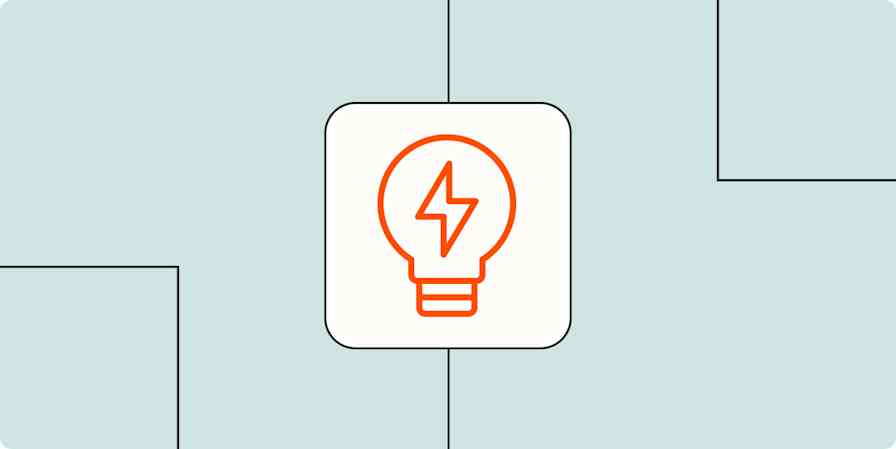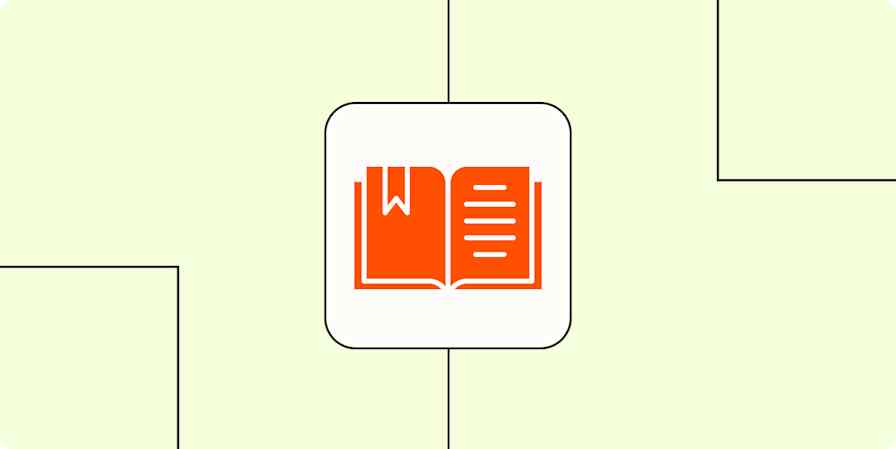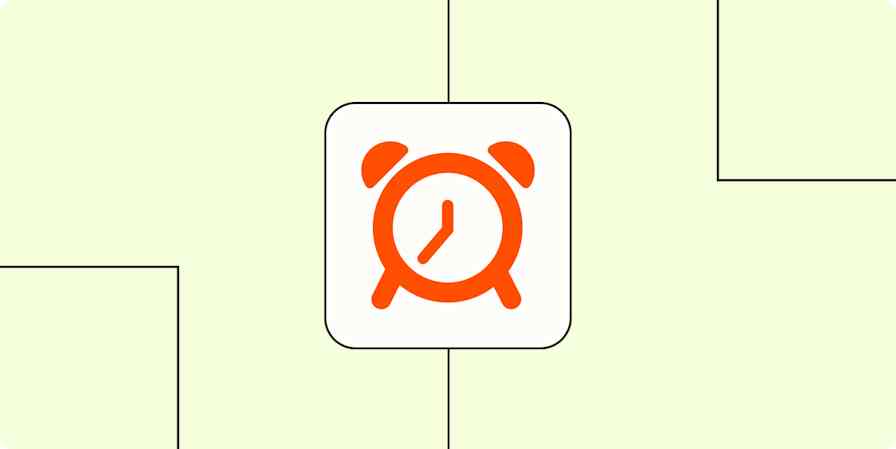If only your office were quieter, if your colleagues would quit asking questions, if the phone would stop ringing. If only your desk were neater, your notebooks cleaner, your files a bit more organized. If you could shut out all distractions, surely you could do your best work.
But then, there are all the times that something randomly gave you a great idea, the time you accidentally found something important in the mess and made something brilliant under a crushing deadline.
It's a contradiction—one that's most apparent in comparing two of Amazon's best business books of 2016: Deep Work and Messy. The former preaches the evils of distraction and how our scattered workdays are leading to less fulfilling work. The latter entices your creative side, suggesting you embrace frustrations and make greatness out of the chaos.
They're opposite—and yet, not quite as opposite as they seem.
Deep Work
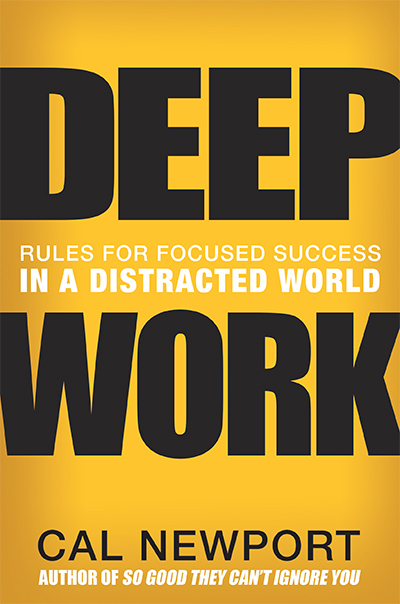
After reading Deep Work, you'll be ready to sell your earthly possessions, disconnect your phone, and retreat to a cabin in the woods. And you'll know that's not the worst idea ever, that doing so just might produce your life's best work.
Author Cal Newport writes from experience, not as a monk but as an academic who had published 4 books, earned a PhD, published 2 academic papers per year, and became a professor all within a decade. So of course he upped his goals, writing a book in a year while also working as a professor and publishing 9 academic papers—and without working nights and weekends.
His strategy is the namesake of his latest book: Deep Work: Rules for Focused Success in a Distracted World. "To produce at your peak level you need to work for extended periods with full concentration on a single task free from distraction," writes Newport. That's the core idea behind deep work. You need to block out distraction and work on only one task without anything else in your mind—and you need to do that for as long a period as possible, every day. That, according to Newport, is how some of the greatest work is done.
High-Quality Work Produced = (Time Spent) x (Intensity of Focus)
Most of us spend our days highly distracted, working in between a constant stream of notifications and messages, beeps and buzzes. It's hard to even finish reading one longform article without checking your phone, let alone work for hours on end without distraction. If anything, our workplaces expect us to be distracted. We're supposed to answer emails at all hours, respond to chat messages seconds after they're received, and answer customers' calls by the 3rd ring—and that's without counting the co-workers walking by and asking questions.
All we're left with is the "shallows," the time between distractions. But it takes so long to get refocused on what we're doing, it's tough to get anything done before the next distraction comes in.
Our best work--the most creative things we can do, the output that's most valuable--that's what most of us say we strive to achieve. It's the only thing that can keep us ahead of AI's onslaught, make us valuable to keep around. And it's that exact work that distractions keep us from accomplishing.
Who you are, what you think, feel, and do, what you love—is the sum of what you focus on.
Cal Newport
"The ability to perform deep work is becoming increasingly rare at exactly the same time it is becoming increasingly valuable in our economy," writes Newport. "As a consequence, the few who cultivate this skill, and then make it the core of their working life, will thrive."
Later on, he states that "the differences between expert performers and normal adults reflect a life-long period of deliberate effort to improve performance in a specific domain," something that's increasingly important to succeed in today's fast-changing world.
Newport argues it's crucial to achieve deep work, and suggests 4 tips to make it possible:
Work deeply: set aside time to work on projects without distractions, times when your colleagues know you are not to be bugged.
Embrace boredom: stop checking your phone all the time. Learn how to concentrate, meditate, and focus on the task at hand instead of constantly looking for a hit of dopamine.
Quit social media: simple enough. Don't keep social networking—or other distracting things—around because they provide some value; instead, only keep tools that bring the most value to your work.
Drain the shallows: scratch the least important work. Reduce commitments that don't bring as much results, to focus on the things that do help achieve your goals.
The book opens with examples of people like psychiatrist Carl Jung, who built a stone retreat with no electricity where he could write without distraction, and Woody Allen, who wrote and directed 44 films, one per year until 2013, without ever owning a computer. J.K. Rowling eschewed social media while working on the Harry Potter series, even checking herself into a hotel to finish Harry Potter and the Deathly Hallows without distraction. Bill Gates shut himself away for two weeks every year to read and plan.
It seems an impossibly high bar to set—and yet it isn't. "Three to four hours a day, five days a week, of uninterrupted and carefully directed concentration, it turns out, can produce a lot of valuable output," writes Newport from his own experience. His own personal work is structured where he gets that chunk of uninterrupted time each afternoon—and that's when he writes the books and papers that advance his career.
"Who you are, what you think, feel, and do, what you love—is the sum of what you focus on," writes Newport in a call to action. Do you want to be remembered for answering your text messages promptly, or would you rather achieve impactful work while still having time for hobbies and family? Newport proposes that deep work is the way to achieve the latter—and backs his recommendations up with research and his own prodigious output.
Messy
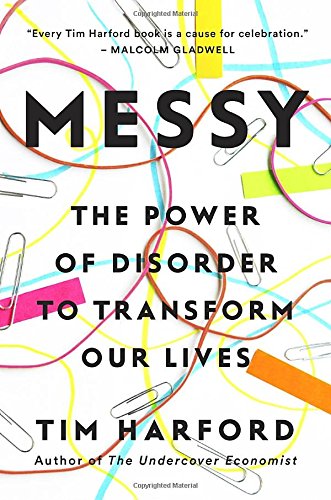
If Deep Work's call for focus and quiet inspires you to clear your workspace and open a clean, blank notebook, Tim Harford's Messy: The Power of Disorder to Transform Our Lives might make you think twice. With a cover that looks like a messy desk, it's seemingly the antithesis to the zen retreat Deep Work inspires you to build.
Because when you say zen and clean, you could also say sterile and bland. A plain white table and perfectly centered laptop might look beautiful; it also might not be the best place to produce creative work.
Messy takes you to concert halls and highways, Olympic proving grounds, and landmark monuments. The author talks with Brian Eno, peeks at David Bowie's magic, and deciphers what made Martin Luther King, Jr.'s best speeches great.
Through it all, there's a common thread: mess. "There can sometimes be a certain magic in mess," muses Harford. Somehow, that out-of-control craziness that life throws at you can be where the best sparks of inspiration come from. Eno used random cards to force musicians to try new things; Bowie collaborated with new people and invented new avatars; King's best speeches pulled in audience feedback and crunched his typical week-long preparation into mere hours.
Even London commuters provide inspiration to embrace mess and the unplanned. During a London Underground workers' strike, commuters were forced to find alternate routes to work. Researchers found something surprising when they looked at the data from transit cards—which work both in Tube stations still in operation as well as on London's iconic buses. "A substantial minority [of commuters] promptly found an improvement to the journey they had been making for years," says Harford. "All they needed was an unexpected shock to force them to seek out something better."
There can sometimes be a certain magic in mess
Tim Harford
The mess of a strike saved those travelers time and money, perhaps adding up to a significant amount over the course of their careers. And yet, without the mess, they would likely have stuck to their rut and never experimented.
"What makes you alert is to be faced with a situation that is beyond your control so you have to be watching it very carefully to see how it unfolds, to be able to stay on top of it," says Harford. "That kind of alertness is exciting."
It's not like every mess is good, that you should dump your wastebasket on your desk and keep Twitter open all day to stay on your toes. But it is true that it's easy to get bogged down in work or a routine, and that it can take something to jar your attention and spark new ideas.
As Harford quoted Brian Eno: "The enemy of creative work is boredom, actually, and the friend is alertness."
We are always reaching for tidy answers, only to find that they’re of little use when the questions get messy
Tim Harford
In lieu of creating senseless messes, Harford recommends keeping multiple projects going at once. "In truly original work, there will always be impasses and blind alleys," says Harford. "Having another project to turn to can prevent a setback from turning into a crushing experience."
Harford keeps three projects ongoing at all times, turning to another project when he hits an impasse instead of turning to distractions. Top scientists switch projects often, he found, both to get fresh ideas and to collaborate with new people which in itself can inspire new ideas. Don't open Twitter; open that other project and start working on something new, perhaps even as a collaboration with someone you've never worked with before. Make a productive mess that makes you progress in multiple fronts at once.
Sometimes the most productive people have the messiest desks; they know instinctively where things are, and work through the clutter—while the rest of us search helplessly through drawers and boxes under our pristine desks. Perhaps that's an analogy for our lives. "We are always reaching for tidy answers, only to find that they’re of little use when the questions get messy," says Harford. So embrace the mess.
Doing Deep Work, Messy Style
Isolated, focused concentration on one side, random chaos producing bursts of inspiration on the other. Yet, the thesis is much the same: You need to do better, more inspired work, and you need something to make you get that done. The world is increasingly distracting, often from our own doing, and that's not going to help you do more creative Messy or Deep work.
Three core ideas align the two books, tips that can help you do your best work more creatively when seen through both lenses:
1. Do The Most Valuable Work
It's increasingly obvious that just doing stuff won't cut it anymore. You need to do your very best work, keep learning throughout your life, and push yourself to try new things.
As Deep Work says, "to remain valuable in our economy, therefore, you must master the art of quickly learning complicated things. If you can't learn, you can't thrive. If you don't produce, you won't thrive—no matter how skilled or talented you are.
"Technologies change rapidly, [and] this process of mastering hard things never ends: You must be able to do it quickly, again and again."
Take pilots, for instance. Messy documents how autopilot and other automations have taken away the simplest, repetitive parts of the job, leaving pilots to solve the thorniest processes like takeoff, landing, and the unforeseen problems en route. Autopilot is a good thing, something that reduced casualties and eased pilots' jobs. And yet, it's harmed those same pilots, making it easy to ignore problems until they're out of hand while also atrophying their seldom-used skills.
If you can't learn, you can't thrive.
Cal Newport
"The better the automatic systems, the more out-of-practice human operators will be, and the more unusual will be the situations they face," says Messy. It's like spelling: We're so accustomed to autocorrect, we forget how to spell the least used words—sometimes spelling them so poorly that autocorrect can't decipher what we want to say.
There are two ways to fight this. One, Deep Work style, is to keep learning. Push yourself away from the simpler tasks that can be automated away, and focus on the hardest tasks that can't. Messy proposes we design smarter automated systems, ones that guard us at work and help us out when we fail, not the other way around. "Rather than let the computer fly the plane with the human poised to take over when the computer cannot cope," writes Harford, "perhaps it would be better to have the human fly the plane with the computer monitoring the situation, ready to intervene." Maybe re-type the word until you get it right, instead of relying only on autocorrect—or force yourself to memorize the corrected spelling.
Exercise your memory. Never stop learning.
2. Make Your Workspace Your Own
Deep Work's hideaways and retreats inspired their owners to focus and do some of their best work. Yet perhaps it wasn't the solitude that did the trick. Messy suggests that the clue may lie in autonomy.
Cubicle farms may be the blandest workplace possible, far from something that would inspire creativity. But the most creative-seeming workplaces didn't necessarily inspire creative work either, found Harford.
Renowned ad agency Chiat/Day's Frank Gehry-designed office was designed to be playful and creative, with murals and sculptures and fairground rides—and no assigned desks. There was no clutter, but also none of the sterility of cubicles.
And yet, employees weren't productive. They had nowhere to keep their stuff, nothing of their own to inspire their work. They were distracted, in the most creative way possible, and it didn't work.
Steve Jobs' team at Pixar hit the same dilemma, with Jobs' idea of having one central set of restrooms where people would have to meet random teammates during the day. Ideally, that would spark new ideas and collaborations. Instead, it wasted time and made life difficult for employees—and Jobs finally backed down.
"Something else matters just as much as serendipity: autonomy," writes Harford. "Junior staff were able to stand up to Steve Jobs, the owner, the legend, the control freak’s control freak—and to get their own way about something that mattered to them. That was more important than all the riveted steel and elegant brickwork Pixar’s success could buy."
The best workplaces aren't sterile, but they're not creative by command, either. Instead, they're the places where you can put stuff where you want and have control over your own work. You can choose to focus and shut out distractions, or you can switch to a different task when you're stuck. That's what makes a quiet abode perfect for deep work—and why your messy desk might not actually be a problem at all.
Related: Productivity and Ergonomics: The Best Way to Organize Your Desk
3. Set Quality Goals—Don't Just do Busywork
Perhaps the greatest overarching theme between Deep Work and Messy is the need to do career-advancing, life-changing work. Today's distracted work style is unlikely to bring about either—and if it does, it'll be with extra hours and stress.
So set goals. Deadlines and goals you're held accountable for can be the creative constraints that force you to do focused work—and sometimes can make you do amazing stuff. And don't just set simple goals like doing more tasks or answering emails faster. As Messy warns, "making targets more complex doesn't stop their being gamed—it merely leads to their being gamed in more complex and unpredictable ways."
Make sure those goals are about the most important things. "In the absence of clear indicators of what it means to be productive and valuable in their jobs," reminds Deep Work, "many knowledge workers turn back toward an industrial indicator of productivity: doing lots of stuff in a visible manner." Don't do that. Instead, figure out what matters, and do that. "Clarity about what matters provides clarity about what does not."
Then, break up your routines. "A script can seem protective, like a bulletproof vest," says Messy. "Sometimes it is more like a straitjacket." Take that weird route to work, without waiting for a strike. Talk to someone new at the office, even if your restrooms don't force you to. Test yourself and try something new, without waiting for autopilot to fail.
That's how you make yourself solve the mess with deeper, more creative work.
We're so often our own worst enemies, entertaining ourselves to death with Twitter and Snapfaceinstabookville instead of putting our minds to the task and doing the most important work. We blame it on distractions around us, when often it's the choices we make that split our attention spans into splinters.
Deep Work and Messy both give a call to putting our best effort behind what we do. Together, they show you how you can make this year more productive—how to make your organized and messy sides come together, yin and yang, for the greater good.

